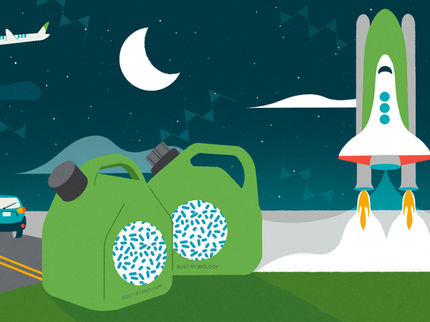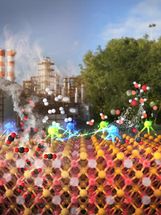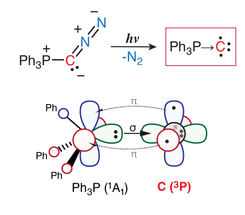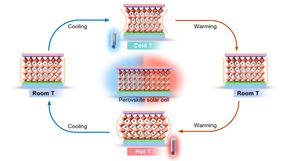Fowl soil additive breaks down crude oil
It is an unlikely application, but researchers in China have discovered that chicken manure can be used to biodegrade crude oil in contaminated soil. Writing in the International Journal of Environment and Pollution the team explains how bacteria in chicken manure break down 50% more crude oil than soil lacking the guano.
Bello Yakubu, Huiwen Ma, and ChuYu Zhang of Wuhan University, China, point out that contamination of soil by crude oil occurs around the world because of equipment failure, natural disasters, deliberate acts, and human error. However, conventional approaches to clean-up come with additional environmental costs. Detergents, for instance, become pollutants themselves and can persist in the environment long after any remediation exercise is complete.
A more environmentally benign approach is to bioremediation, which uses natural or engineered microbes that can metabolize the organic components of crude oil. Stimulating such microbial degradation in contaminated soil often involves the use of expensive fertilizers containing nitrogen and phosphorus, and again may come with an additional environmental price tag despite the bio label. Soil hardening and a loss of soil quality often accompany this approach.
Ma and colleagues suggest that animal waste, and in particular chicken manure, may provide the necessary chemical and microbial initiators to trigger biodegradation of crude oil if applied to contaminated soil. One important factor is that chicken manure raises the pH of soil to the range 6.3 to 7.4 which is optimal for the growth of known oil-utilizing bacteria.
In tests, the team added chicken manure to soil contaminated with 10 percent volume to weight of crude to soil. They found that the almost 75% of the oil was broken down in soil with the fowl additive after about two weeks. Whereas additive-free soil was naturally remediated to just over 50%.
The team carried out a microbial analysis of their samples and identified 21 different microbial species known as aerobic heterotrophs. The team explains that Bacillus species and Pseudomonas aeruginosa were the best oil-munching microbes but of the 21 isolates 12 were capable of metabolizing components of crude oil. Other microbes included Proteus, Enterobacter, and Micrococcus species. Bacillus represented the most prevalent species.
"The use of chicken manure to stimulate crude oil biodegradation in the soil could be one of the several sought-after environmentally friendly ways of abating petroleum hydrocarbon pollution in the natural ecosystem," the team concludes.
Most read news
Organizations
Other news from the department science

Get the chemical industry in your inbox
By submitting this form you agree that LUMITOS AG will send you the newsletter(s) selected above by email. Your data will not be passed on to third parties. Your data will be stored and processed in accordance with our data protection regulations. LUMITOS may contact you by email for the purpose of advertising or market and opinion surveys. You can revoke your consent at any time without giving reasons to LUMITOS AG, Ernst-Augustin-Str. 2, 12489 Berlin, Germany or by e-mail at revoke@lumitos.com with effect for the future. In addition, each email contains a link to unsubscribe from the corresponding newsletter.



















































